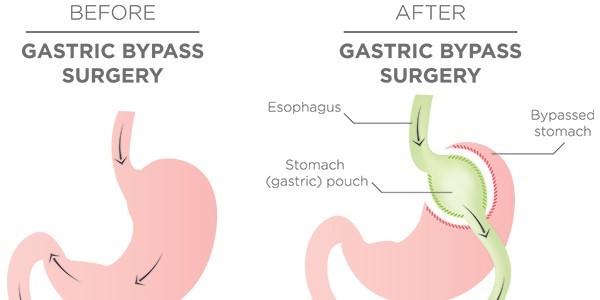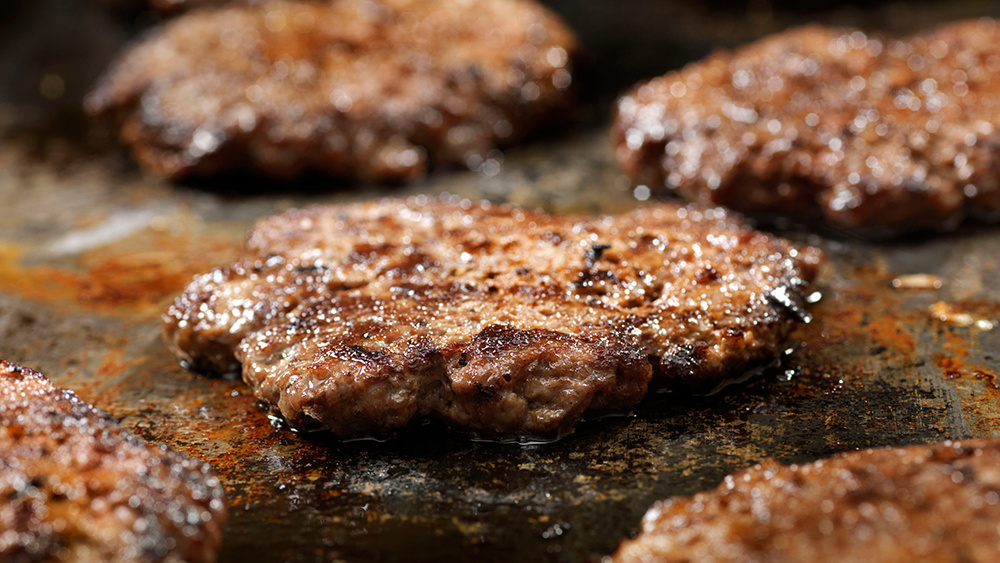5 Ugly Things I’ve Learned About Gastric Bypass Surgery

 Add to favorites
Add to favorites
Right off the top, I have to admit I have no personal experience with gastric bypass surgery and I am not a medical professional. What you are going to read here are things I’ve learned in talking to people who have had weight loss surgery. They wanted to share with me some of their experiences. You’ll also see a few statistics.
I put my foot down in my own weight loss journey when gastric bypass surgery came into the market decades ago. At this point, there are several types of surgery all aimed at helping people lose weight. I am lumping them all into the category of bariatric surgery.
Over the years I tried every type of diet I thought might give me hope of losing weight and keeping it off. Some helped me get the weight off, but none helped me keep it off. When it came to bariatric surgery I was adamant that I was not going to do it unless the doctors told me death was imminent and I had no other options.
So I’ve never done it. Why?
First off because death is one of the listed side effects. They don’t emphasize that 1 out of every 1000 patients who undergo gastric bypass die within a year after the surgery. I don’t like those odds.
Patients undergoing bariatric surgery had a 1-year case fatality rate of approximately 1% and a 5-year case fatality rate of nearly 6%. Less than 1% of bariatric surgery patients died within the first 30 days after the procedure. — This info was produced by the CDC and several study sources.
Reason #2
People have a tendency to gain the weight back. Most people tell me they do pretty well for about a year. Then they start to gain it back. Some of the factors involved: When they make your stomach smaller and you fill up on a piece of protein about the size of a hard-boiled egg, what do you do next? The medical professionals don’t seem to provide you with the psychological support people need. Imagine you’re at a family celebration. You’ve eaten your small meal while everyone else is still passing bowls and platters of wonderful food. You’re very limited and they will go on eating for 30 minutes or more while you sit there feeling left out.
I have talked to people who express how they were used to chewing a certain amount of time and they miss that. People who have bariatric surgery are people who love food, love eating food and, in many cases, love cooking food.
I went on a diet one time where all I did was drink doctor-prescribed, chalky diet shakes for over 3 months. The first week I went insane because I was not cooking. I truly became depressed. It didn’t take me long to realize I didn’t need to eat but I had to smell food! I have the discipline it takes to be able to cook a gourmet meal for a full table of people and not eat any of it. Most people don’t. I’m not bragging. It was not easy. I just imagine most folks can’t pull that off.
I’ve heard lots of stories of how bariatric patients realize they can eat longer if they eat carbohydrates. They don’t fill them up as fast, so they can eat more. I hear about patients eating popcorn by the bucket full. One woman talked about how her mother started living on chocolate and champagne. She could eat that and feel like she was having fun, but she was also gaining the weight back with a vengeance. You can stretch that reduced stomach out again.
You have to learn how you got fat in the first place, how to get it off, and then how to keep it off. It will be up to the patient to implement the plan but if they don’t learn it in the first place they can’t put it into action. They just go back to eating the way they used to and gain it all back.
Reason #3
Complications. I have never talked to any gastric bypass patient who hasn’t told me of complications they had as a result of the surgery. Many of them tell of having to have more surgery to fix what went wrong. I know one woman who spent years in pain. They could not figure out why. She was sick every single day and uncomfortable all the time. Turns out they didn’t put her internal plumbing back together the right way and it was causing havoc. A specialist finally figured it out and of course, they had to do a second surgery to fix it.
Reason #4
This one applies to anyone who loses a lot of weight; no matter how they go about it. That’s skin tightening surgery. When the fat empties out, the skin has already been stretched and it sags. Some folks; especially younger people can recover from the weight loss and their skin will magically tighten back up but for many, it won’t. Unless you have so much overlapping skin that you get infections and regular rashes from it, your insurance won’t pay for the skin tightening surgery. And it’s expensive. I’m facing that myself. I already have plenty of skin bagging and all of the exercise I do won’t fix it. When I’m finally done losing all I want to lose I have to make the decision of whether I want to face plastic surgery and the months of recovery. The scars, and more. I’m not looking forward to it but I’m also afraid currently to show my body. It’s not pretty.
Reason #5
It’s hard to put this delicately but if you have bariatric surgery you’re looking at some messy and embarrassing side effects. One is called dumping. You can use your imagination, but it means a lot of running to the potty in a real hurry or find things running down your leg. It also means unexpected gas attacks that won’t give you warning.
There you have my top 5. Believe me when I tell you this list could be quite a bit longer.
Cheers,

Chicken Verde
This is going to taste just like a traditional enchilada without the tortilla. If you have Mexican food fans in your family this is a hit!
Nothing found.
Smash Burgers
ZS-5 Ingredients or Less,ZReboot,Featured Posts,ZSpecialties,Recipes
Smash burgers are all the rage. Step into a brew pub and you’ll likely find a smash burger on the food menu. These are NOT the huge, 8oz burgers we’ve been fed in the past. These are a thinner burger…
Nothing found.
Chives
My chives were the first thing to come up in my herb garden every year. As soon as the snow melted I could see their little heads popping up through the soil. By the time it was warm enough to…
Potatoes and the Glycemic Index
Featured Posts,Zola Blog,Carbohydrates
Enjoy potatoes in moderation and use these hints to make healthier choices.






